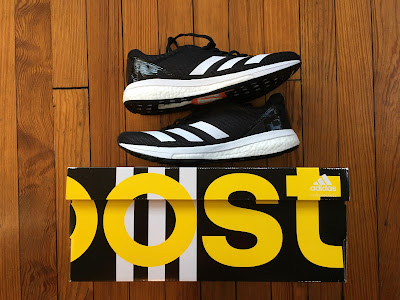Shoe Game:Prototypes in the Marathon
The original Nike Vaporfly prototype (braceworks.ca)
Before the Nike Vaporfly was introduced to the general public in 2017, the shoe was being tested by Nike athletes such as Galen Rupp and Shalane Flanagan. But, it wasn't tested in a lab, but at major races. Rupp won his first ever marathon, the 2016 U.S. Olympic Trials Marathon in the prototypes shown above. In the female race, of the top 3 finishers, 2 of them wore the same prototype. In the 2016 Olympic Marathon, the top 3 male finishers: Kipchoge, Lelisa, and Rupp wore Vaporfly prototypes. But is this acceptable, or is this cheating?
Prototypes for the elites
But, it's not just Nike who are providing prototype shoes for their athletes. Desiree Linden won the 2018 Boston Marathon in what seems like a Brooks Hyperion prototype. Jared Ward placed 8th at the 2019 Boston Marathon in unknown Saucony racing shoes. Parker Stinson ran a new 25k American record in the same shoes Ward ran in. It seems like athletes today are provided with secret prototypes that normal runners can't get their hands on. But is this fair? I think it is. They're prototypes after all, and you need a realistic and competitive setting to test them. Using prototypes on a treadmill isn't going to help anything. But, wearing them at a race against other competitors will be useful to see how the athlete performs in prototypes: was the cushion enough for them, did they run a new pr, did the material fall apart easily in this environment? etc.
Galen Rupp goes on to place 3rd at the 2017 Boston Marathon wearing Nike prototypes (Instagram)
Parker Stinson's coach Brad Hudson believes the Nike Vaporfly isn't for everyone. It helps some runners out more than others, depending on the person's stride, and so it's not a shoe for everyone. "I don't think it's unfair." Hudson said. "The thing is, people choose to be sponsored by a company. Part of the choice is: what do you think of the equipment?" I totally agree with what Brad Hudson said in the Letsrun interview. No one is being forced to test out and use the Vaporfly 4%. They are choosing to do it themselves. That is why there are many companies making their own products and prototypes to out do another company. Athletes choose their sponsor depending on what they like about the company. There is nothing unfair about this situation. If someone believes that it's unfair for someone else to race in Vaporflys, why don't they invest $250 on them if they are that intrigued.
Before the Nike Vaporfly was introduced to the general public in 2017, the shoe was being tested by Nike athletes such as Galen Rupp and Shalane Flanagan. But, it wasn't tested in a lab, but at major races. Rupp won his first ever marathon, the 2016 U.S. Olympic Trials Marathon in the prototypes shown above. In the female race, of the top 3 finishers, 2 of them wore the same prototype. In the 2016 Olympic Marathon, the top 3 male finishers: Kipchoge, Lelisa, and Rupp wore Vaporfly prototypes. But is this acceptable, or is this cheating?
Prototypes for the elites
But, it's not just Nike who are providing prototype shoes for their athletes. Desiree Linden won the 2018 Boston Marathon in what seems like a Brooks Hyperion prototype. Jared Ward placed 8th at the 2019 Boston Marathon in unknown Saucony racing shoes. Parker Stinson ran a new 25k American record in the same shoes Ward ran in. It seems like athletes today are provided with secret prototypes that normal runners can't get their hands on. But is this fair? I think it is. They're prototypes after all, and you need a realistic and competitive setting to test them. Using prototypes on a treadmill isn't going to help anything. But, wearing them at a race against other competitors will be useful to see how the athlete performs in prototypes: was the cushion enough for them, did they run a new pr, did the material fall apart easily in this environment? etc.
Galen Rupp goes on to place 3rd at the 2017 Boston Marathon wearing Nike prototypes (Instagram)
Parker Stinson's coach Brad Hudson believes the Nike Vaporfly isn't for everyone. It helps some runners out more than others, depending on the person's stride, and so it's not a shoe for everyone. "I don't think it's unfair." Hudson said. "The thing is, people choose to be sponsored by a company. Part of the choice is: what do you think of the equipment?" I totally agree with what Brad Hudson said in the Letsrun interview. No one is being forced to test out and use the Vaporfly 4%. They are choosing to do it themselves. That is why there are many companies making their own products and prototypes to out do another company. Athletes choose their sponsor depending on what they like about the company. There is nothing unfair about this situation. If someone believes that it's unfair for someone else to race in Vaporflys, why don't they invest $250 on them if they are that intrigued.
Scott Overall competes in the 2018 London Marathon in Vaporflys only given to elite athletes (Facebook)
More on this story:





Comments
Post a Comment